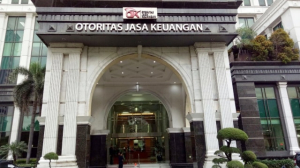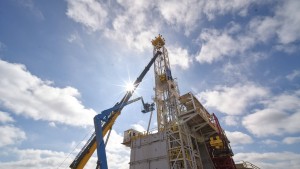Indonesian government plans to implement carbon tax starting on 2024
The Indonesian carbon exchange has been officially launched on September 26, 2023. However, the implementation of the carbon tax will not come into effect until 2024.
Adi Budiarso, the Head of the Financial Sector Policy Center at the Fiscal Policy Agency of the Ministry of Finance, has mentioned that the regulations governing the implementation of the carbon tax are currently being developed by the government.
According to the Harmonization of Tax Regulation Law (UU HPP), there will be three regulations to oversee the application of the carbon tax.
"In the UU HPP, the plan is to implement the carbon tax in 2024. We are currently assessing the readiness of industries committed to the Nationally Determined Contribution [NDC], as well as the carbon cap and trade trading mechanism, and the economic aspect," said Adi during the Indonesia Knowledge Forum event in Jakarta on October 10, 2023.
On the other hand, Adi stated that the carbon tax aims to encourage a shift in people's behavior towards transitioning to clean energy. The policy is expected to help Indonesia achieve its NDC commitments and attain Net Zero Emissions (NZE) by 2060.
Meanwhile, Doddy Rahadi, the Head of Standardization and Industrial Services Policy at the Ministry of Industry, mentioned that the government plans to increase the carbon tax rate from its previous level of IDR 30,000 to IDR 70,000 per kilogram. However, this plan is still under discussion.
"But for companies that can reduce carbon emissions, no tax will be imposed. The tax is for companies that exceed the carbon emission limits," he said.
No tax no interest
With the carbon tax not yet implemented, there is limited interest in the carbon exchange, as noted by Bhima Yudhistira, Director of the Center of Economic and Law Studies (Celios).
He stated that the lack of carbon tax policy provides no incentives or disincentives for businesses, especially those in the oil and gas, mining, and large-scale agriculture sectors, and therefore give them little to no reason to engage in carbon trading as carbon buyers.
Once the carbon tax is in place, businesses will have to decide whether to pay tax for their excess emissions or offset them through the carbon exchange.
Bhima urged the government to expedite the implementation of the carbon exchange. Furthermore, he pointed out that the carbon tax in Indonesia is relatively low, even smaller than the average in other developing countries that already have carbon tax instruments.
"The carbon tax should be implemented quickly with a higher rate to enhance the liquidity of the carbon exchange itself. This is what needs to be done now," he added.
Tag
Already have an account? Sign In
-
Start reading
Freemium
-
Monthly Subscription
20% OFF$29.75
$37.19/MonthCancel anytime
This offer is open to all new subscribers!
Subscribe now -
Yearly Subscription
33% OFF$228.13
$340.5/YearCancel anytime
This offer is open to all new subscribers!
Subscribe now







